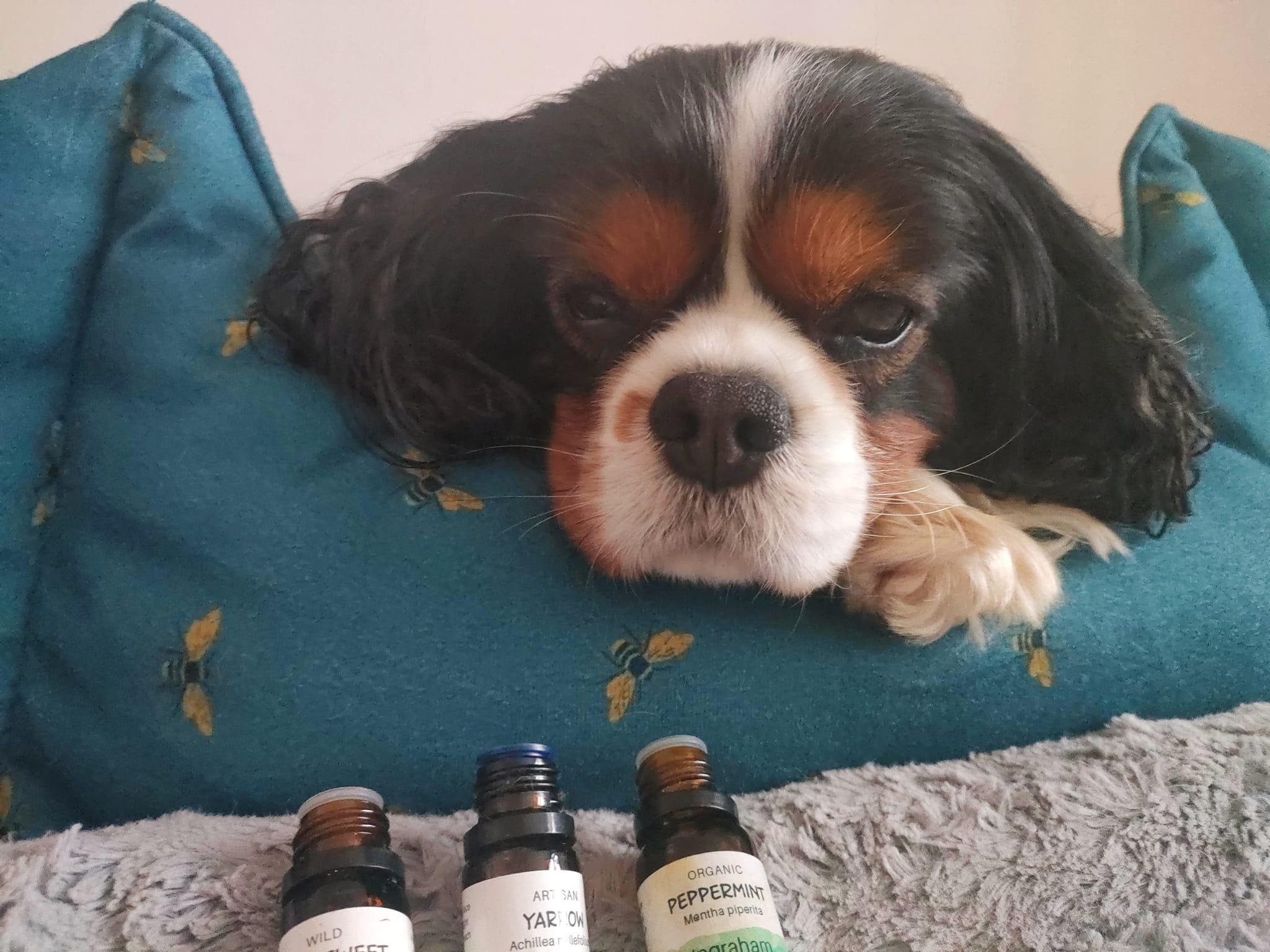Anal Gland issues in dogs
Natural help for your dog
Many breeds have chronic issues with their anal glands with symptoms, such as, scooting along the floor, irritation with their backside, diarrhoea, irritability and even aggression etc… And often leading to what vet’s term “impacted glands” when the substance in the glands has become thick or hardened and the glands are inflamed and swollen meaning that they require veterinary intervention to release them.
Anal glands can fill for a number of reasons; most commonly when there hasn't been enough pressure to empty the glands, such as, after a few days of diarrhoea. Whenever they haven't emptied properly, there's a chance that glands can become blocked, impacted and swollen.
I knew when Merlin’s glands were impacted because his behaviour would change and he was less tolerant around certain dogs like puppies or over-cocky dogs.
His tolerance for external stress was markedly lowered. Probably due to pain and irritation. In Merlin’s case it was only the behaviour change and perhaps diarrhoea that would tell me the glands might be an issue as he showed no other symptoms. And with the gut issues he has had since a puppy it was difficult to tell whether it was the gut or the glands but I am sure they are inevitably linked. See my next article on how we healed his gut issues with Dr Amy Watson from Pinpoint Veterinary Surgery
A TIP I can give is that you need to get a baseline of what “normal” glands look like and what impacted glands look like for the following advice to work for you. Obviously keeping your dog’s backside trimmed and clean for hygiene purposes is essential to a healthy bum.
After 5 years of trying all the advice out there - I have finally hit upon the answer for Merlin and he is 9 months and counting, free of gland issues that have haunted him his whole life. Before he had to go to the vet regularly to have them expressed. And now we haven't been back since December 2022.
Things we tried that didn't work for him, adding fibre to the diet, we tried oat flour (which expands the poop), we tried changing foods and came off the protein chicken which is a known potential inflammatory food. We tried homeopathy (which had been excellent for fungal itch, a different issue he had but not successful for this).
Merlin had to have his anal glands expressed by a vet every 3 months and it was extremely painful and traumatic for him. It broke my heart. The vet suggested surgical removal of the glands but this was not a route I wanted to take. Perhaps the above remedies will work for your dog but they didn’t for my dog.
Finally I asked for help on the Dog Friendly Dorset group and Charlotte Erika Walker from Animal Health and Healing who is a group member suggested the following simple and easy method to preventing anal gland impaction. I am SO grateful.
Charlotte wrote: Anal Gland impaction and infection is generally down to wheat food. However dogs that are not on kibble can still have the issue due to immune system deficiency. My dog has it. We control is by using a hot towel on the anal area as it dissolves the solidified liquid. This liquid can be healthily removed naturally expelled out of their system through their urine.
Warm Flannel Compress Method
Boil the kettle, let the stream disperse
Use a bowl and (add some sea salt or himalayan salt or any medicinal salt, not table salt! This is my addition to Charlotte’s recipe as therapeutic salt is a natural antibacterial agent and I want to clean and treat the area for bacteria as well)
Add the boiled water
Place a flannel in the water and before you apply the flannel to your dogs anal glands, safe test the towel on your skin, then place on your dog's anal area.
Charlotte says: My dog actually likes it, probably because it is a relief! If your dog moves away it is too hot, so do not apply straight back, let it cool a few seconds again. Reapply and leave until cooled down.
Do this every time you see their discomfort. Keep doing it and the period of time will increase between applications. I was doing it weekly, then monthly, now maybe twice a year at the most! Says Charlotte
This method has been successful for Merlin and I am so relieved. I do gently press the glands from the outside with the flannel after about 30 seconds of him relaxing onto he flannel but only gently and some minor discharge does come out showing that the ducts are working and the glands are not impacted. I also check that the glands are not swollen or enlarged before trying this method as it is a preventative and not a treatment for already inflamed and impacted glands. You will need to seek veterinary advice for the latter.
Anal Gland Abscess
Anal gland abscesses can develop with dogs who have chronic anal gland issues when the glands become infected.
Below are some Zoopharmacognosy natural remedies for an anal gland abscess that helped me manage Merlin’s pain levels until the glands naturally burst and could heal when hey had become so impacted and inflamed that not even veterinary intervention could help. Gone are these days! You can ask me more about Zoopharmacognosy on our email hello@dorsetdogs.com
Vets can place a dog under anaesthetic and manually rinse out the glands in the case of anal gland abscesses but we have never needed to do this.
Merlin taking in some natural remedies to help him when he had impacted glands and to relieve the pain and discomfort.



